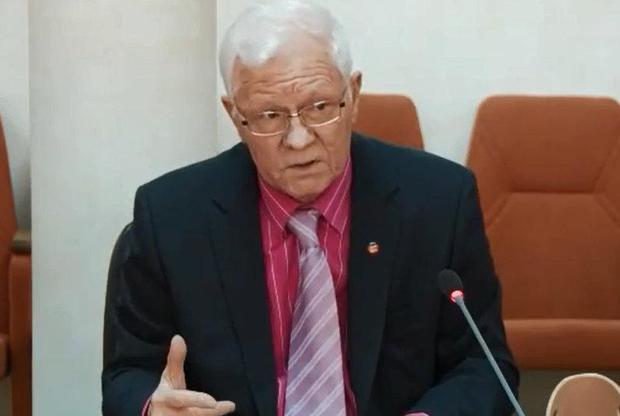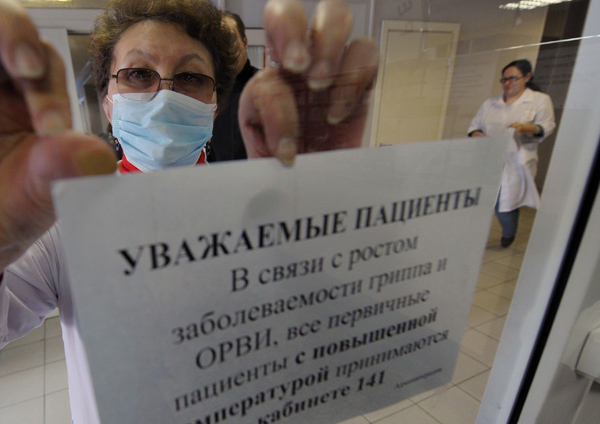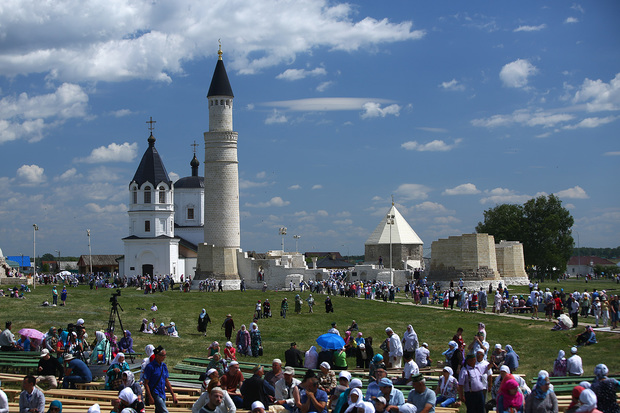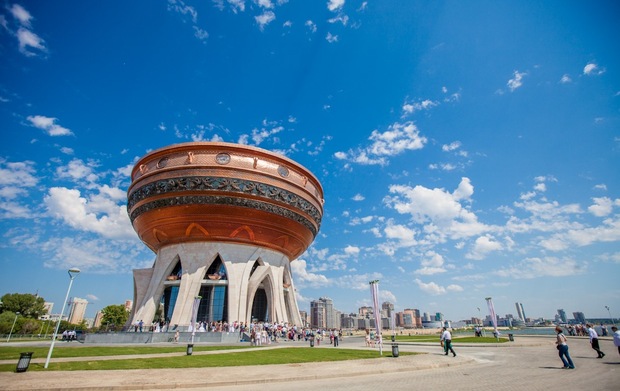Ilshat Aminov: ‘We are, like cold-blooded frogs, hibernating in hope of future increase in oil prices’
From oil to mediation: the week through the eyes of the creative team of the program '7 days'
Another week is behind, and the journalists of the analytical program '7 days', coming out every Sunday on channel TNV, turned again to the main themes. This time correspondents of the program are looking for answers to questions regarding the forecasts on oil, of what would be in place of Bulgar and Sviyazhsk if Mintimer Shaimiev hadn't taken up for the revival of historical monuments, and also whether a mediator will save Tatarstan marrigies.
Guessing on the barrel of oil: will grow — will not grow
The dollar is approaching one hundred rubles, and only ten is left for the euro to reach a hundred. The ruble, according to an onscreen moderator Ilshat Aminov, gradually turning into a simple piece of paper. The drop in the value of the domestic currency made a vacation abroad almost impossible. 'There is no need in Berlin wall, travel abroad becomes a luxury,' — he said.
Last week the media discussed the bold statements of the head of Sberbank German Gref, expressed at Gaidar Forum, when he said that today Russia is a country-downshifter, and the 'age of oil' is over. Gref, of course, was critisised, especially by the deputies of the State Duma. But, according to Aminov, in fact he's right.
'Last years we all wore rose-colored glasses and said that Russia is not so dependent on the export of raw materials, that there are nanotechnology, import substitution, hi-tech industry. Alas, the basis of Russia's economic growth were high oil prices. Oil fell, and we stopped, like cold-blooded frogs, hibernating in hope of the future increase in oil prices,' — he said.
For six months, oil prices fell fivefold, from $110 per barrel of Brent in June 2014 to its current value of $30 per barrel. 'What does it mean and how can it affect the economies of Russia and Tatarstan and the well-being of our citizens?' — wondered Ilshat Aminov.
The Prime Minister claims about the reduction of budget expenditure at least by 10% as the measure to maintain economic stability. The Chairman of State Council Farid Mukhametshin also assumes the sequestration of the national budget — though specific figures have not been called yet.

The crew of the programme addressed to various experts for the forecasts, what to expect in the economy this year. According to them, any course of events is possible. An economic observer of our online newspaper Albert Bikbov recalls that in the late 90s of the last century, oil prices even fell below $10 per barrel. But this year we shouldn't expect the large jump: a barrel of oil can cost from $30 to $40.
The forecast from Renat Muslimov, a consultant of the President of Tatarstan on issues of mineral resources, oil and gas, is more optimistic. He believes that 'oil prices will start from the bottom and then will rise to $50-60, and then to one hundred.'
The Director of the branch of the brokerage house Nikolay Laptev is agree with him, according to his forecast, the oil will begin to grow from the end of January until the summer and will total about $50-60.
But will there be a further drop and how long it may last? The experts are not giving direct answers to these questions, because they just don't know what to expect. According to economists, this crisis is too weird, not market-oriented.
Yes, the growth rate of China's economy has slowed down; yes, there is an excess of oil on the market, and the exporters — especially Saudi Arabia — do not cut the production; yes, Iran, yes, USA. But all these 'yes' are not enough to explain the collapse in oil prices. One can be said with absolute certainty, said the correspondent of '7 days': oil will have its price — and it will change.

The principle 'heal yourself' is not for the flu
Another problem of last week was the flu epidemic that swept the country after the New Year's holidays. Last days in St. Petersburg dangerous virus has already claimed the lives of 15 people. Another 11 deaths registered in Volgograd, 3 in Belgorod, 2 in Moscow.
In Tatarstan the situation is better — below the epidemic threshold by 19%. This year the so-called swine flu has returned, deadly H1N1. In 2009, the flu of this type in Tatarstan has claimed the lives of 12 people. On 20 January in Tatarstan four patients with the dangerous flu were revealed, and on January 22, their number increased to nine, seven of them are residents of Kazan. Deaths are not recorded, but nevertheless, doctors warn that the epidemic is not far off, you have to be ready for it.
Most importantly, the doctors advise not to self-medicate. The principle 'heal yourself' in the case of the flu often leads to death. It is better to go to infectiologist.

No one ever before him could not take the responsibility to bring this idea to life
This week the State Counselor of Tatarstan Mintimer Shaimiev has celebrated his 79 birthday. Mintimer Sharipovich is always energetic and full of new plans, said Ilshat Aminov, and the programme was continued with the story, focused on the activity of the first President of the Republic on the revival of monuments of architectural heritage.
Today the restored complex of the ancient Bulgar settlement attracts thousands of people. Historians believe that the future of these monuments would have been different if not the will and authority of Mintimer Shaimiev. No one ever before could take the responsibility to bring the idea to life.
In 2010 Mintimer Shaimiev officially declared about the end of his of his political career and his desire to start doing what he was really want to do: the revival of the history and culture of his people. So, it was decided to establish the Fund Revival and to adopt the parity Federal and Republican program 'Cultural heritage of Tatarstan: island-town of Sviyazhsk and ancient town of Bolgar'.

People of different professions, different ages, different nationalities, religions helped the Fund. Many experts claim that it's not the money, but the authority of the man whose thoughts, ideas and plans have always been realized. Always, even in the most difficult years.
Archaeologists claim that in recent years in Tatarstan it has been a huge breakthrough in the study of the historical heritage and archaeological surveys have reached a new qualitative level. In the result of tremendous work in June 2014 the ancient city of Bolgar was included in the world heritage list of UNESCO.
The Fund Revival still has a lot of problems, many ideas that require the attention and participation of state adviser: the Cathedral of the assumption in Sviyazhsk aspires to get in the list of UNESCO; in May 2016 in Bulgaria there will start the construction of a new hotel complex and the Islamic Academy – unprecedented for Russia educational institution.
A mediator will help to disintegrating families
Another urgent issue of our days became the theme of the programme plot: occurrence in Kazan of family mediators. In 2015 in Kazan new record of birth rate was set: 24 063 children were born. Over the past 15 years the birth rate in the capital has grown threefold.
But this is not the only record that relates to family relations, — the number of divorces has decreased. Last year 4 678 pairs decided to break up — by 7.5% lower than a year earlier. The registry office of Kazan launched a new project — 'Save the family', which aims to restore the relationship between husband and wife. Those couples, who have reached filing for divorce, are offered to go through mediation.

According to the Head of Department of the General Civil Registry Officein Kazan Guzel Gabbasova, in Russia Kazan is the pioneer in this respect. According to her, there are similar programs in Europe and the US, but none of them is held in registry offices. The mission of a mediator is to restore the dialogue between the couple who decided to break their relationship.
The innovation has already have the first positive results: one out of seven couples, who came to the first meeting, decided not to divorce and withdrew an application.
Last year in Tatarsatn officially 13 450 families broke up — 11% less than in 2014, despite the positive dynamics, the Republic has launched two major projects aimed at preserving families. One of them — the mediation, that is being tested only in Kazan and then will be practiced in other cities.
Psychological counseling will be offered to those couples who apply for divorce to the court. This decision was made together with the Volga State Academy of family Umay. Those couples, who live in remote areas of Kazan, are provided with the Internet service 'Family consultation', which was launched on the official website of General Civil Registry Office of the Cabinet of the Republic of Tatarstan.